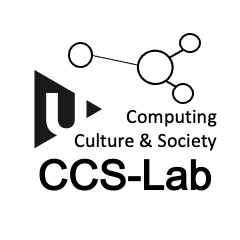It is our great pleasure to invite you to the “Computing the Past” conference to be held in Plzeň. This website will be regularly updated with all details concerning the conference, including academic program and practicalities.
Conference dates: October 6-8, 2022
Conference venue: Plzeň, Education and Research Library of Pilsener Region (SVKPK; address: Smetanovy sady 2, Plzeň 301 00, CZECH REPUBLIC)
Registration: All in-person participants (presenters & regular audience) have to register using the following REGISTRATION FORM (closes September 23September 16). Call for papers was closed on May 15, 2022 – you can check it from here.)
Description and aims of the conference
Digitized datasets and novel computational methods open up new avenues for the study of the human past. Over the last few decades, the ambition to explore these new avenues became apparent in many SSH disciplines concerned by the dynamics of human cultures and societies. We have seen an emergence of new specialized subdisciplines, like computational archeology, digital history, or digital literary studies, to name but a few, with their own conferences, workshops, and publication venues. However, with the emergence of these new subdisciplines, it appears that disciplinary divisions still tend to hinder a better integration of knowledge. The main ambition of this workshop is to help to overcome this limitation by offering an opportunity for researchers from different disciplines concerned with the human past to meet together around one table. We believe that the shared interest in computational methods and digital datasets is an ideal precondition for a stimulating conversation which could lead to an interdisciplinary cross-fertilization. The workshop pays special attention to the historical environment of the ancient Mediterranean (AM). As a widely studied historical environment, AM is also an area in which the computational approaches are thriving across numerous subdisciplines. The event will culminate in a panel discussion with several experts on the history of AM – including the keynote speakers – with the title “Computing the Ancient Mediterranean”. We hope that the discussion will help us to identify the most important issues impeding the study of the past in the digital age in general.
Keynote speakers
- Monica Berti (Leipzig University, a Classicist and Digital Humanist, focusing on computational analysis of ancient Greek and Latin) – slides
- Tom Brughmans (Aarhus University, Denmark; an Archeologist studying Roman economy and a proponent of formal network analysis and computer simulations in archeology)
- István Czachesz (University of Tromsø Norway; a Biblical Scholar and a pioneer in application of computational, cognitive and evolutionary approaches to early Christianity)
Program
CONFERENCE PROGRAM (regularly updated)
Organizers:
- Vojtěch Kaše (kase@kfi.zcu.cz, CCS-Lab, University of West Bohemia)
- Tomáš Glomb (tomas.glomb@gmail.com, CEDRR, Masaryk University)
The workshop is organized as a part of the project “Cultural Evolution of Moralizing Religions in the Ancient Mediterranean: A Distant Reading Approach” funded by The Czech Science Foundation (GA20-01464S) and pursued by Tomáš Glomb and Vojtěch Kaše.
Co-organizing institutions:
- Computing Culture & Society Laboratory (CCS-Lab), University of West Bohemia
- Center for Digital Research of Religion), Masaryk University (CEDRR)
- Czech Association for Digital Humanities (CzADH)
- Education and Research Library of Pilsener Region (SVKPK)
Practical information
Accommodation
We do not have any particular recommendation concerning accommodation. The workshop venue is in the heart of the city of Plzeň. You should easily find a hotel room in a walking distance to the workshop venue with price under 80 € per night.
Travelling to Plzeň
Plzeň lies approx. 100 km west of Prague. From there, it is easily accessible by public transport (train or bus) or by car (highway E50 Prague-Nurnberg).
From Prague airport, we recommend you to take bus 100 to the stop Zličín (17 minutes; ~1 €), and there to change for a direct bus to Plzeň by flixbus or regiojet (60 minutes; 4.6 €). For the bus from Prague to Plzeň, we recommend you buy the ticket in advance.
Plzeň is also accessible from Germany, especially from Nurnberg, Regensburg or Munich. For instance, there is a direct train between Munich and Prague which stops in Plzeň.
For more detailed info see visitplzen.eu.
Public transport in Plzeň
In all vehicles, you can easily buy tickets by card from an automat after you enter the vehicle.
For more info see: https://en.pmdp.cz
Useful links:
opening presentation (with some practicalities)
